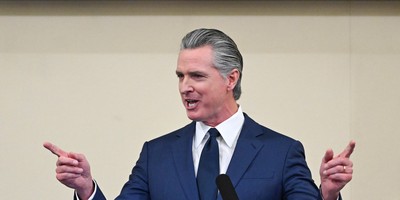My friend David Brunori announced this week that he is no longer a “liberal” but a libertarian, although he says of the “bleeding heart” variety.
This is interesting because David has long been one of the nation’s top state fiscal experts. He is currently an editor of the Tax Notes family of periodicals (which are subscription only).
What made David see the light about government?
I’ve been calling myself a liberal in the pages of State Tax Notes since I began this column in 1996. I’ve been introduced at conferences and bars as a liberal tax pundit, a liberal professor, and a card-carrying liberal. In my line of business, it was expected that one would either be liberal or, if you were a pawn of the 1 percent, a conservative. Decent tax policy folks weren’t libertarians. Libertarians had no tax policy. But I’m too old to hide my feelings.
I came to realize my true identity by taking a survey on the Libertarian Party website. I scored a perfect 100 percent on the personal freedom meter, but only an 80 percent on the economic freedom meter. Still, those scores make me a libertarian. Some of my liberal friends will hate me for coming out. But I’ll remind them that hate is not a tax policy value. Besides, by definition, I still care for the poor and dispossessed. I’m no anarchist. I’m no isolationist. I still believe that government has a positive role to play in society. I want good roads and teachers and appreciate that someone will answer the phone when I dial 911. But I think we should look at government more skeptically.
I’m weary of corporate welfare. I’m weary of tax incentives. I’m weary of government economic policy that’s largely intended to enrich politicians’ cronies. For example, California Gov. Jerry Brown (D) has been hellbent on spending $93 billion on a train that apparently no one wants and few will ride. But a small number of connected men would make a fortune building it.
I’m weary of the incessant arrogance of the nanny state. The Boston Public Health Commission recently voted to ban electronic cigarettes from the workplace. Memo to those in Boston: Electronic cigarettes are fake. They blow a harmless vapor of mist. Real cigarettes are banned from public places purportedly because of the dangers of secondhand smoke. Personally, I think the marketplace can handle smoking issues just fine, but let’s assume people are too stupid to make decisions about working at or patronizing places that allow smoking. What gives political elites in Boston the right to ban a product that has no secondary harm? Nothing. They do it because they don’t like people who smoke (even ersatz smokers). But more importantly, they do it because they have the power. I’d go blow real smoke rings in their faces if it weren’t so obviously immature.
Recommended
David also provides a useful essay in Tax Notes this week: “A Practical Approach to Libertarian Tax Policy.” He proposes seven principles to guide tax policy from a limited-government perspective:
- Pay for Government—With Taxes [not debt]
- Reject Tax Expenditures
- Make Taxes Visible
- Reject Excise Taxes
- Reject Inefficient Taxes
- Oppose the VAT
- Embrace Federalism and the Property Tax
It’s a pretty good list. David and I particularly have a mind meld on the importance of fiscal federalism. David is an excellent analyst and concise writer, so I’m glad he’s now on the team.
For more on libertarian tax policy, readers can look at my “Options for Tax Reform.” I propose three broad principles to guide tax reform: simplification, efficiency, and limited government.
























Join the conversation as a VIP Member